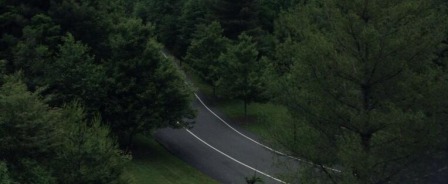CiRCE Summer Institute: Day 1 Journal

As you perhaps know we are currently at the beautiful Chetola Resort in Blowing Rock, NC for the CiRCE Summer Institute, this year a conversation about Homer’s epic poem, The Odyssey. Mr. Jonathan Councell, our friend from Veritas Classical School in Asheville, NC volunteered to journal his experience here at the retreat. The following is his day 1 experience.
This year, the beautiful Chetola resort in Blowing Rock, North Carolina has seen a gathering of some very sick people. Well, sick according to Swiss doctor Johannes Hofer. In 1688 he combined the Greek words nostos and algos in order to give a name to a “new illness” that was afflicting the Europeans of his time. Unfortunately, no man-made cure was ever found, and many have this illness today. Like any other mentally deranged folk, we have “come apart” to this mountain resort so that we don’t bother normal people with our ravings about a dead language, the mutterings about some bard named Homer, discussion of unseen beings and places, or of why all of us hate being told that we can’t go Home; Hofer’s veritable Nostalgics. We were fed wonderfully by our hosts this morning, and were oriented to our new life over the next couple of days: Luxurious group condos, “group therapy” sessions, paddle boating, restorative foods, mountain air, the occasional walk, and the Odyssey were prescribed as remedial treatment for this longing for a lost home, time, and identity. As we opened the Odyssey and found that “homecoming” is mentioned about every four lines, we realized that this story is a case study in man’s struggle for his soul, that this dis-ease has been around long before Hofer noticed it, and that a desire for a “return” cannot be classified as abnormal when it seems to characterize an entire race. Our God calls out for us to “return” to Him; He tells us to “seek my face.” I think that we, along with the Circe Institute, speak for all God’s people when we say: thy face, O Lord, will we seek–for in thy presence is fullness of joy. What an incredible and–if you’re not here–enviable joy it is to leave the “broken cisterns” of modernity and the brackish marshes of post-modernity, and to begin our “return” in walking along ancient Homeric streams “too deep for taint,” searching for the true Source and “Fountain of Life.”










